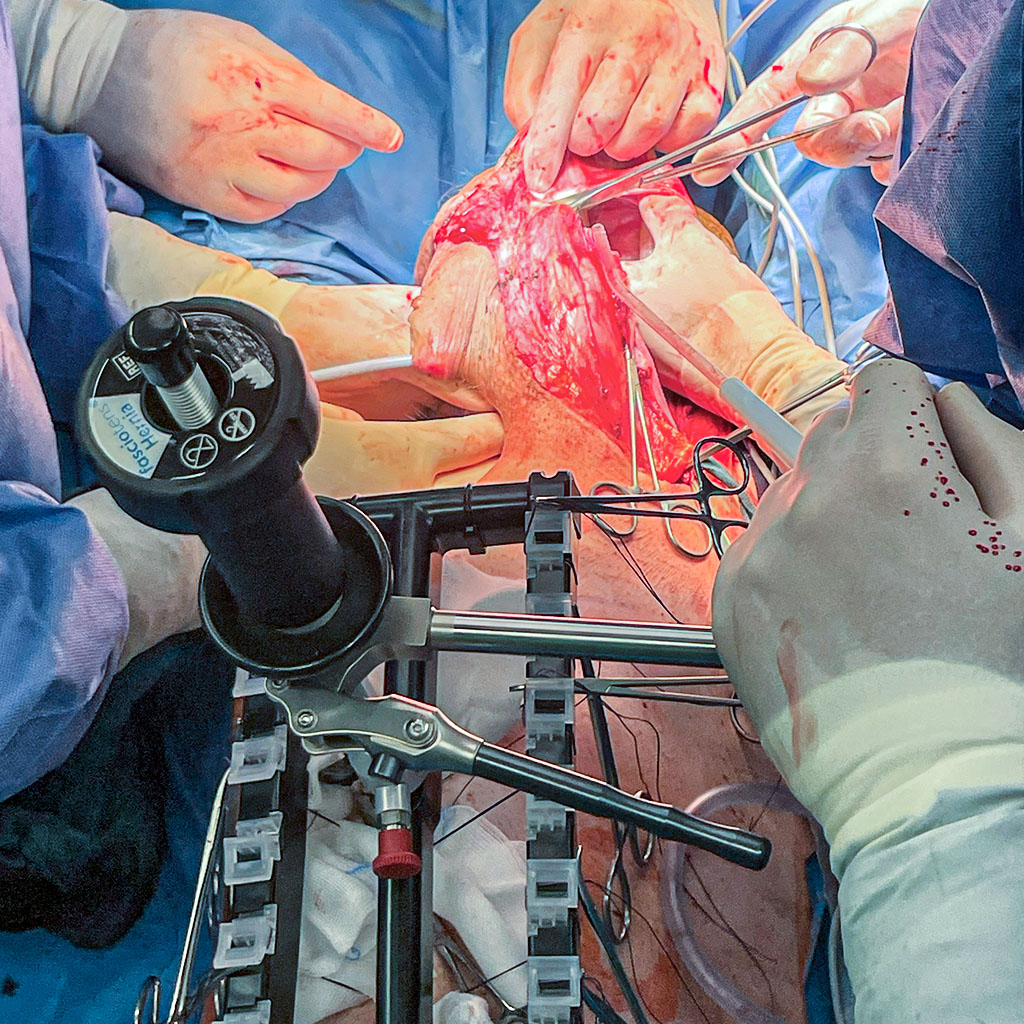
Monstrous scrotal hernia
Laparoscopic application to enable Lichtenstein Repair
Augusta Hospital, Bochum, Germany - November 2023
Metin Mazgaldzhi and Benno Mann treated this patient with a massive inguinal hernia. Nearly all of the intestines had migrated into the hernia sac. They used fasciotens® to increase the intra-abdominal volume to allow a repositioning of the intestines inside the abdominal cavity without risking an abdominal compartment syndrome.
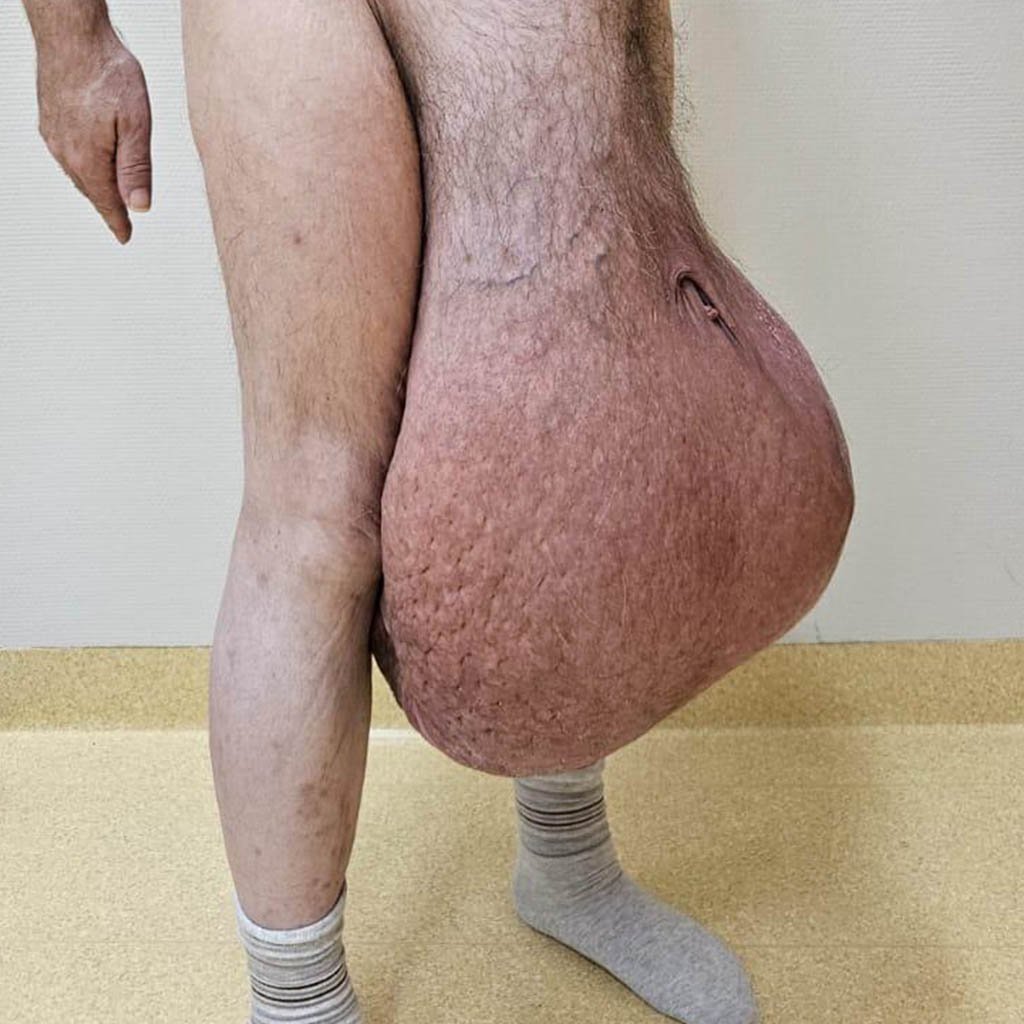
Increasing intra-abdominal volume
To make sure that relocating the organs to their original location in the abdominal cavity would not lead to a rise of the intra-abdominal pressure (IAP), the surgeons decided pre-operatively to increase the intra-abdominal volume by using Intraoperative Fascial Traction (IFT).
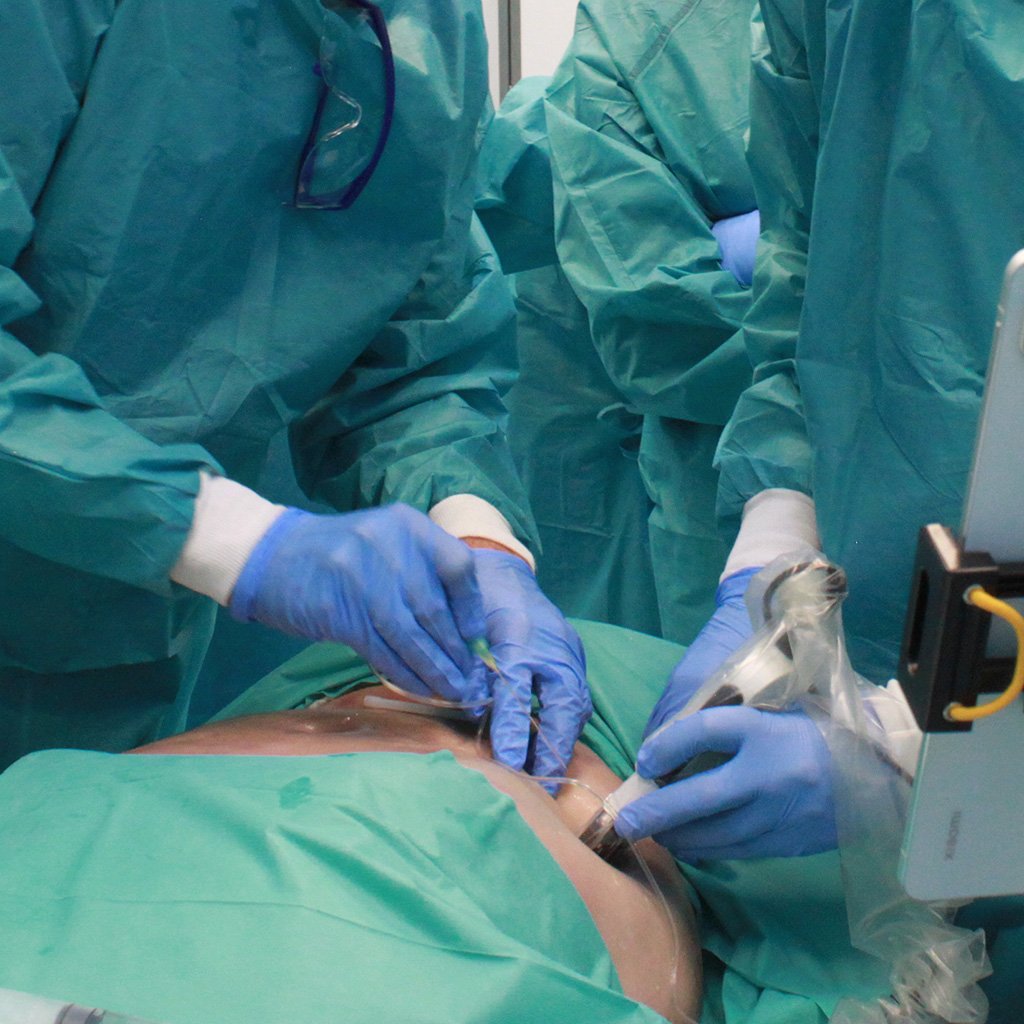
Pre-treatment with botulinum toxin A (BTA)
The patient received BTA injections 3 weeks before the hernia repair. The desired result was achieved, having a relaxation of the lateral abdominal wall. BTA aligns very well with IFT, especially in Loss of Domain defects.
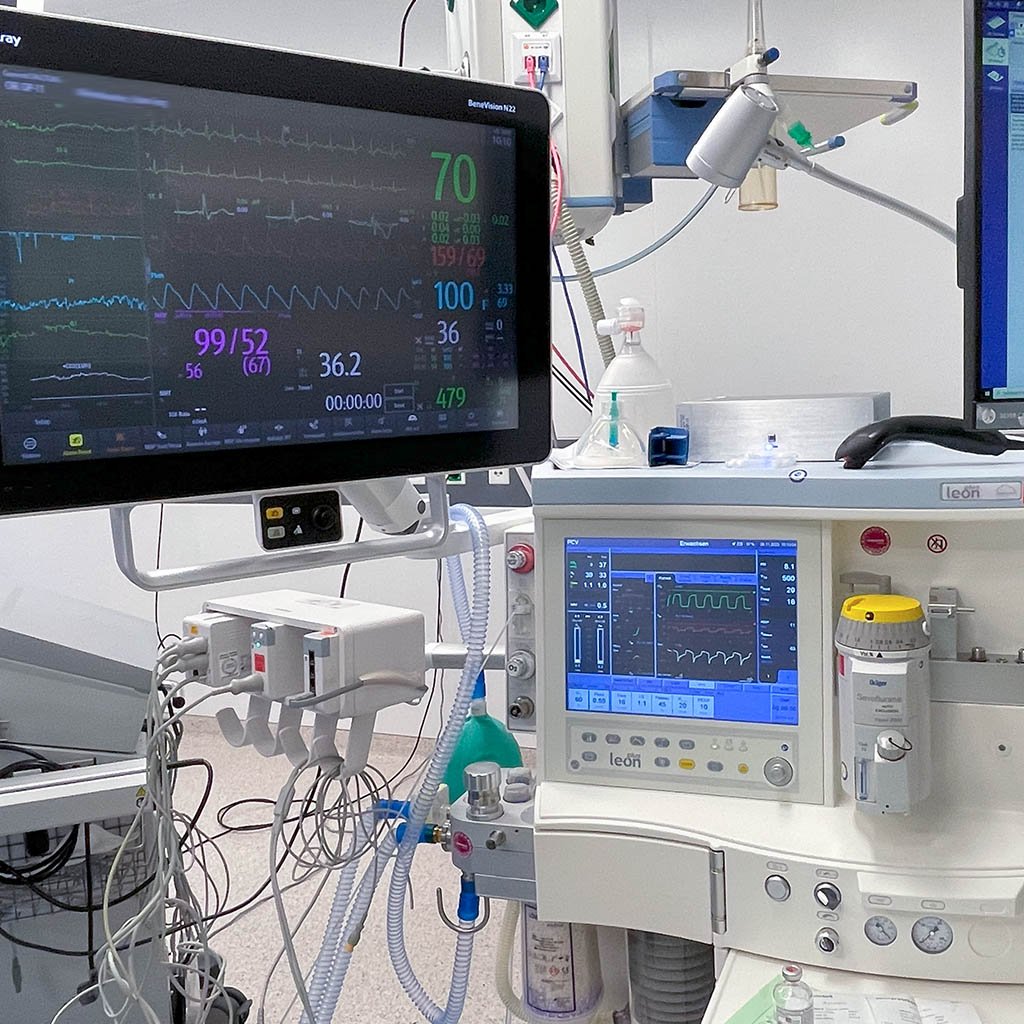
Full relaxation during anaesthesia
The patient was kept under general anaesthesia with muscle relaxant on a drip (perfusor). Complete muscle relaxation during IFT is an important step to achieve the greatest possible stretching of the abdominal wall during the treatment.
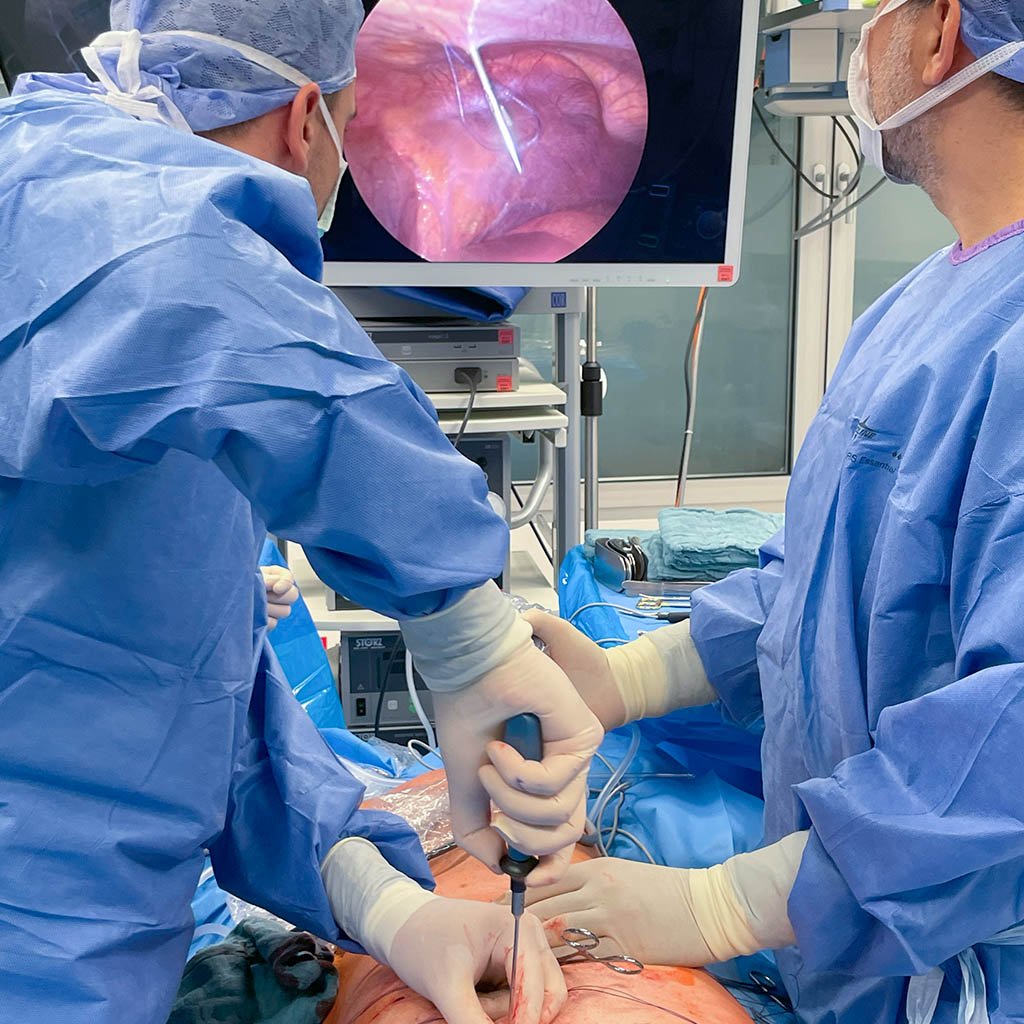
Laparoscopical application of fasciotens
Since the patient presented with an inguinal hernia, the abdominal wall and midline were fully intact. To minimize the impact on these structures, the procedure was performed laparoscopically. The Lichtenstein technique was employed following standard open surgical protocol.
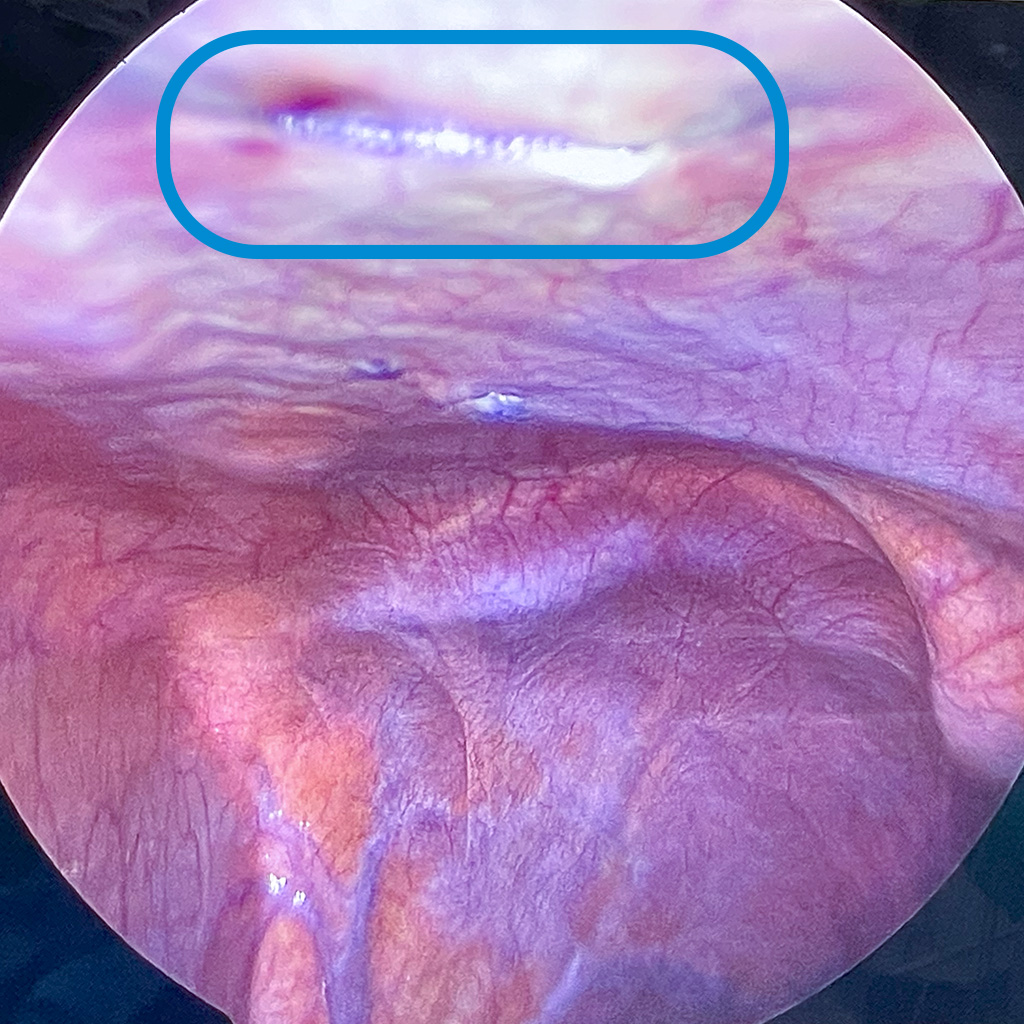
Attaching the traction sutures to the fascia
The braided suture threads (USP 2) are stitched as U-sutures to the fascia. For the maximum effect, the threads should be stitched into the linea alba.
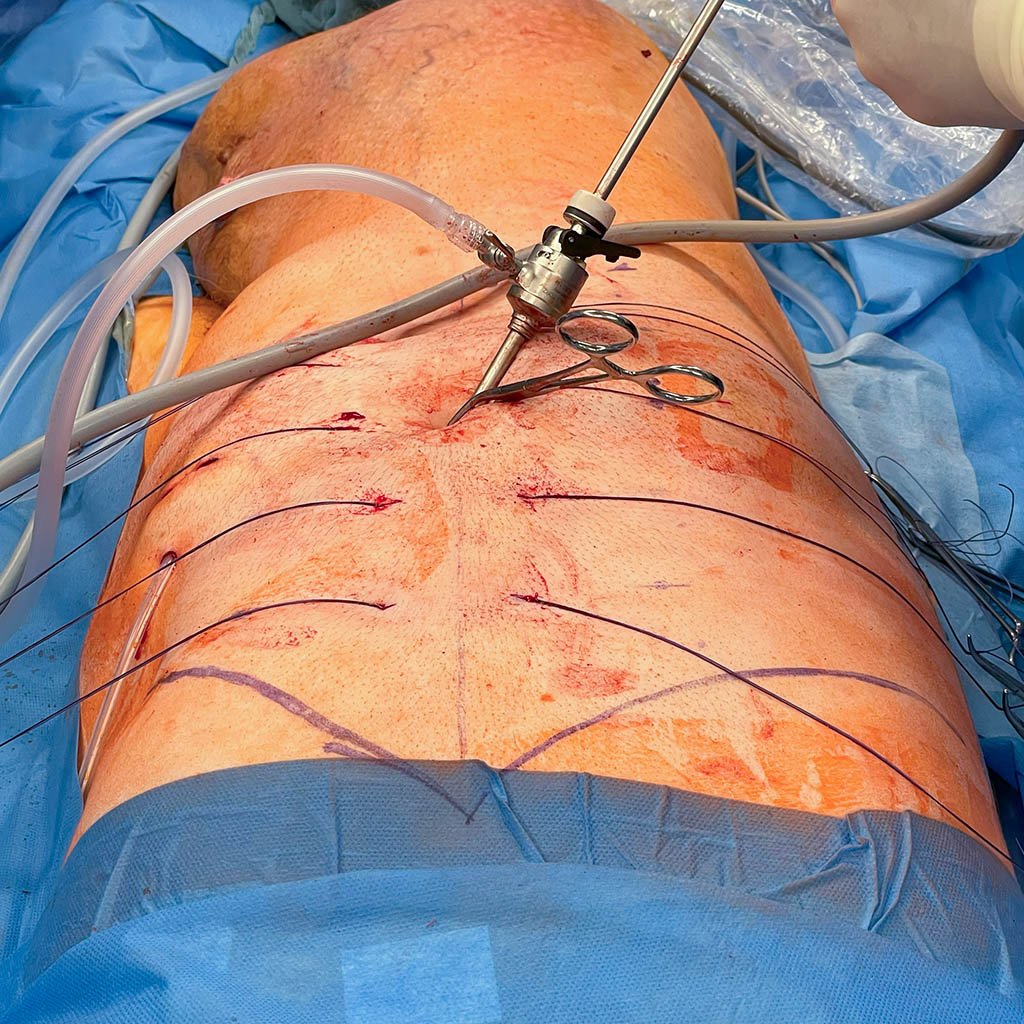
Evenly distribution along the fascia
Usually, six suture threads are used per side. In this case, Metin used only five threads per side because access to the midline was limited caudally due to the massive inguinal hernia.
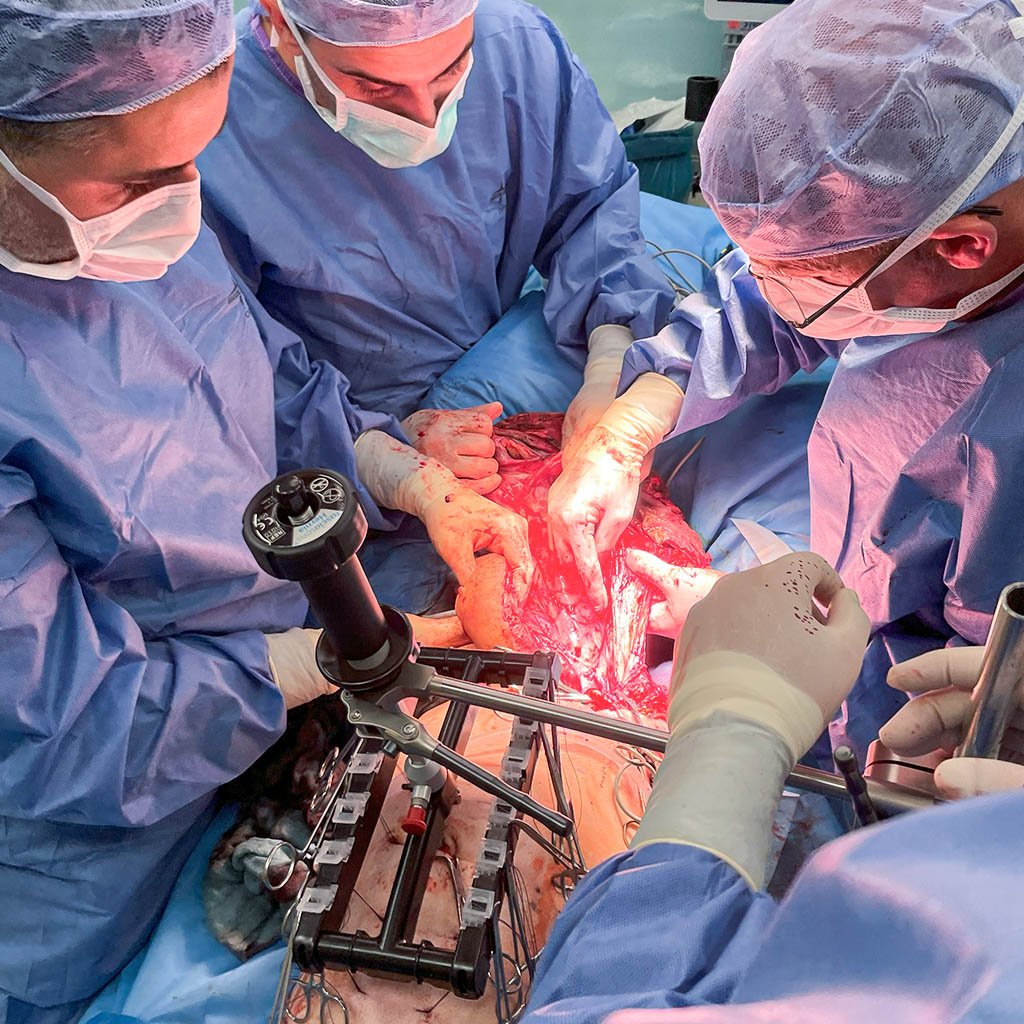
Repairing the hernia
While stretching the lateral abdominal wall to increase the intra-abdominal volume was carried out, inguinal hernia repair was done simultaneously.
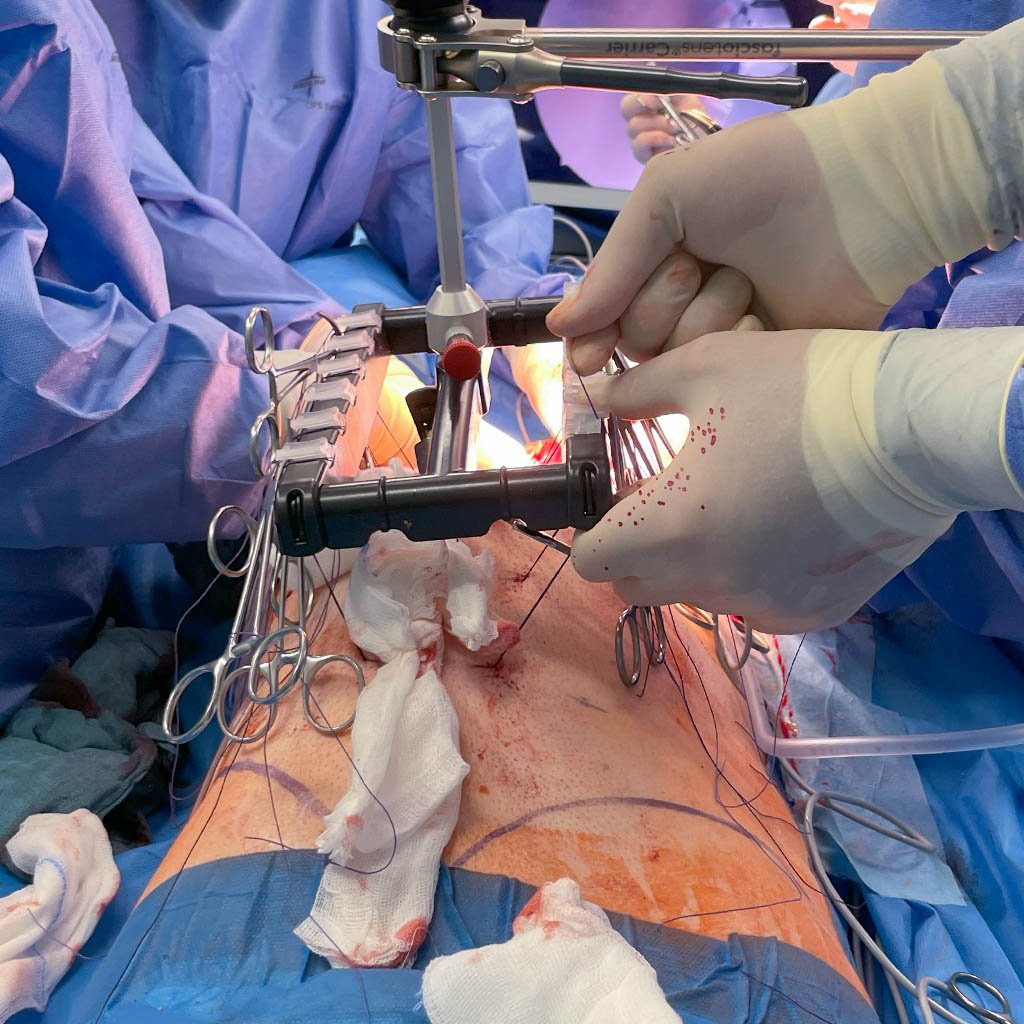
Re-tightening the suture threads
While Benno Mann was working on the hernia, Metin made sure to re-tighten the traction sutures every 2 minutes. Since the fascia is not a homogenous structure, some areas stretch faster than others. Therefore Metin checked each suture individually and pulled them tight again if necessary. You can use the hand wheel to increase the traction force on all threads at once.
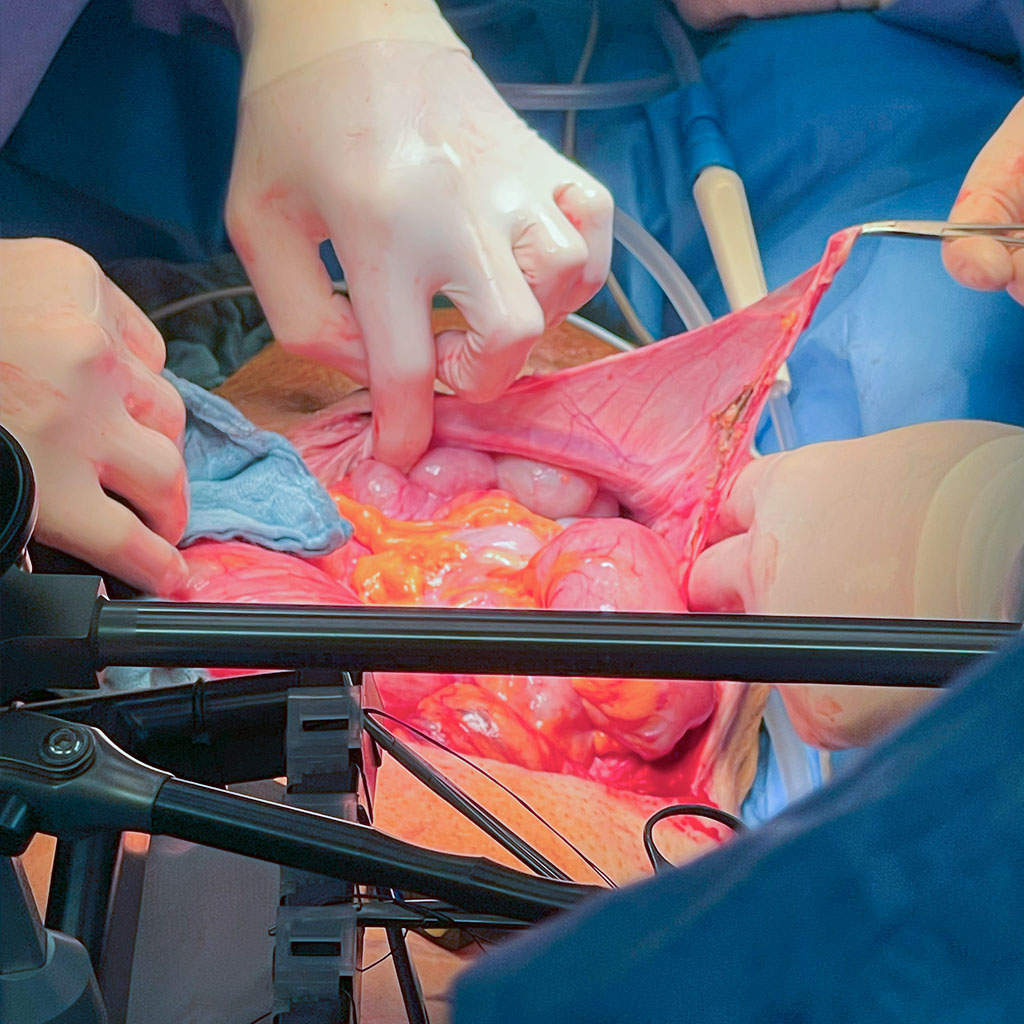
Adhesiolysis
The patient had severe adhesions, attributed to the prolonged existence of the hernia, which surgeons presumed to be congenital and to have developed over the course of the last 50 years.
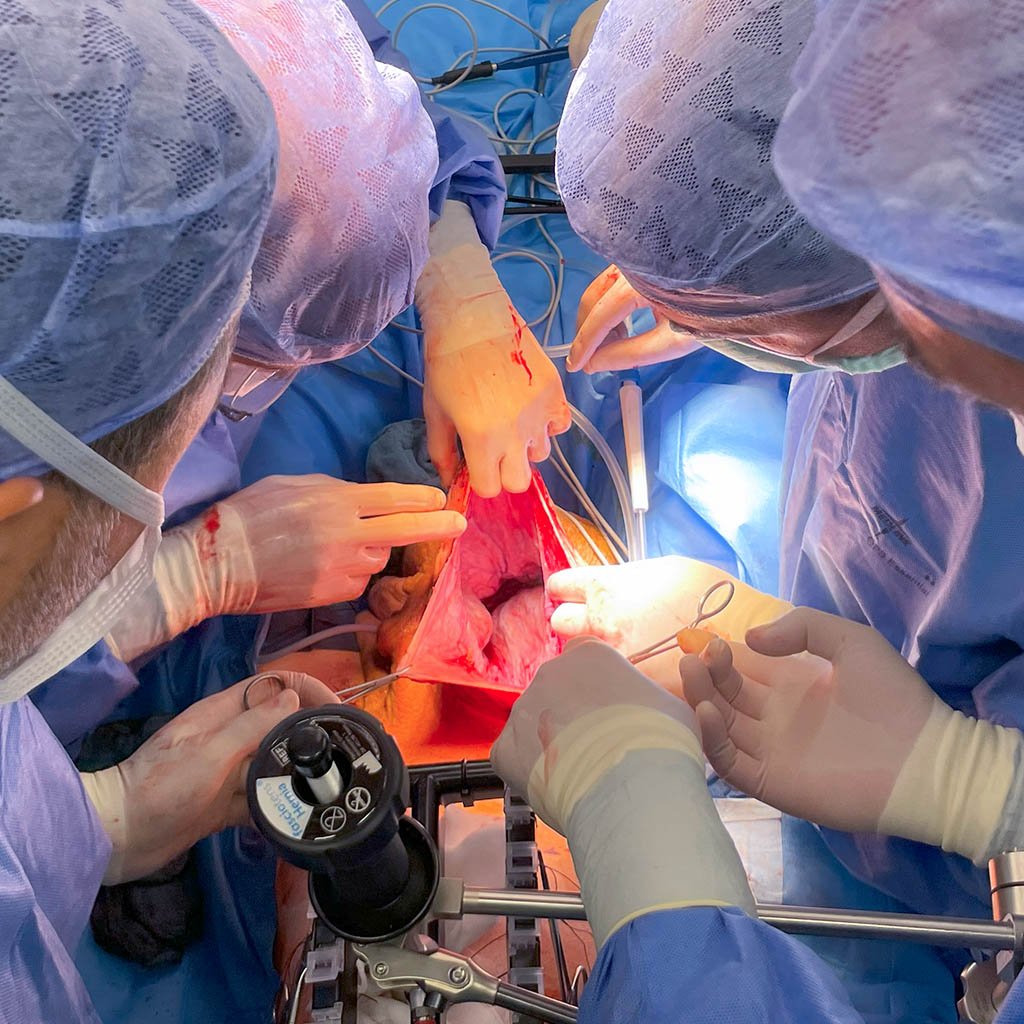
Relocating the organs
Even though the hernia gap itself was rather small and the loss of domain was massive, the surgeons could maneuver the intestines back into the abdominal cavity surprisingly smoothly.
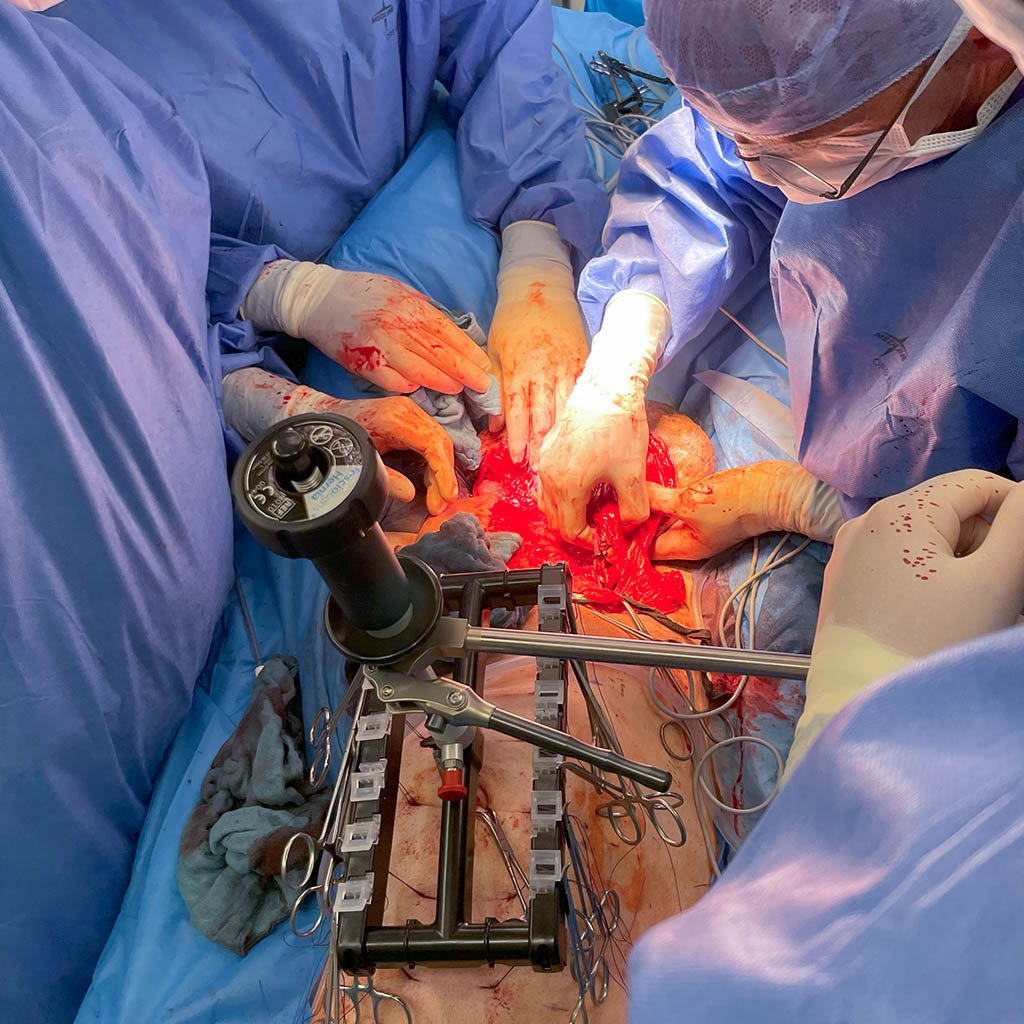
Keeping the device attached during reconstruction
While Lichtenstein repair was performed the surgeons kept the device in place to allow an continued stretching of the abdominal wall to maximize the increase in abdominal volume.
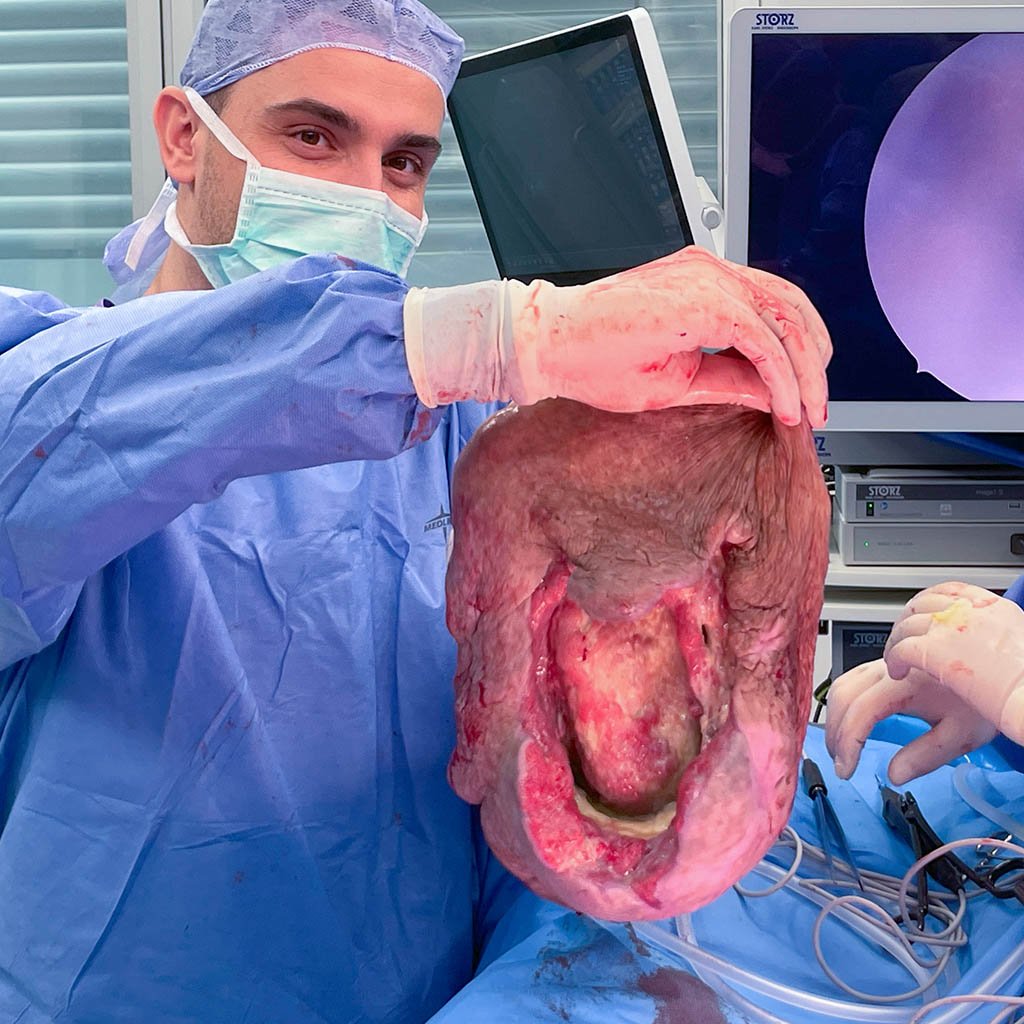
Removal of massive skin excess
The huge hernia sac, skin & tissue measured up to 7 kg. It was removed without any complications.
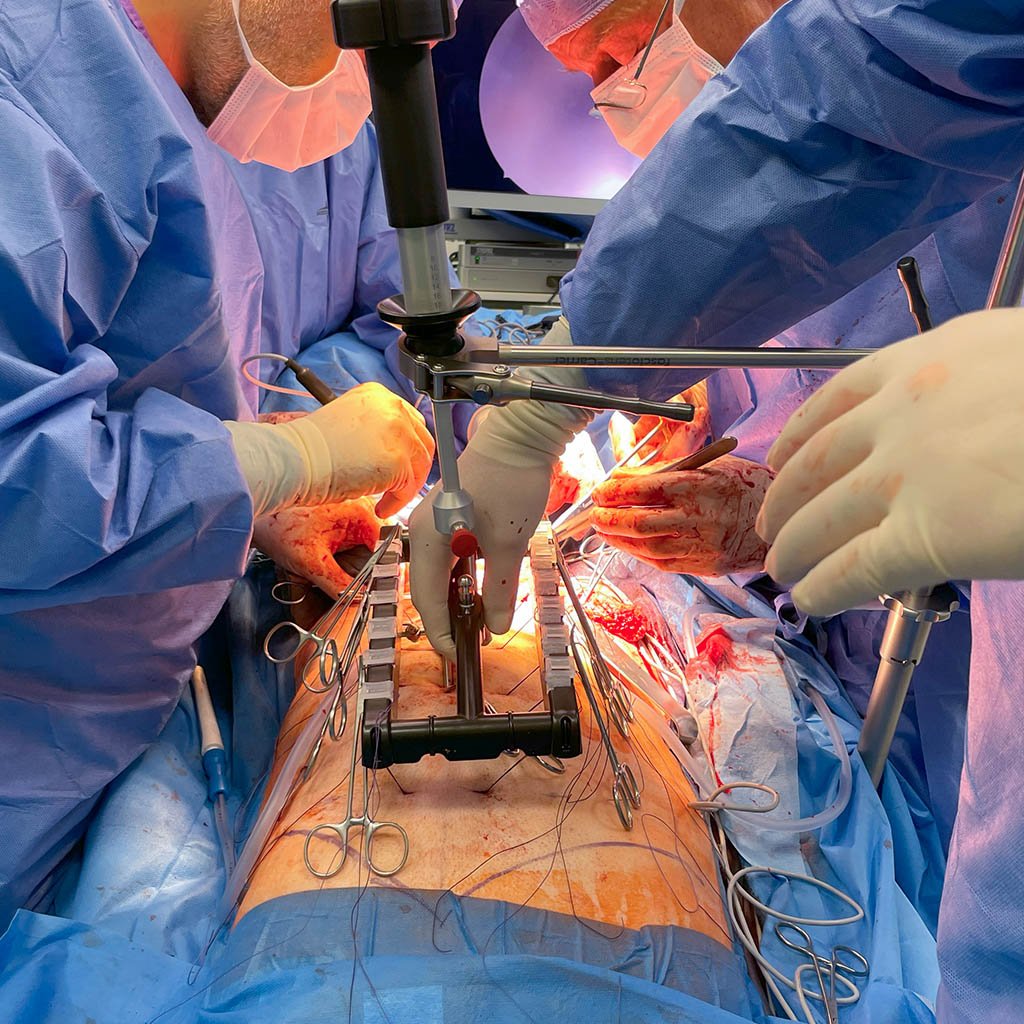
Disassembly of the fasciotens device
To allow better access to the wound area, the device was easily disassembled while Benno was performing the wound closure.
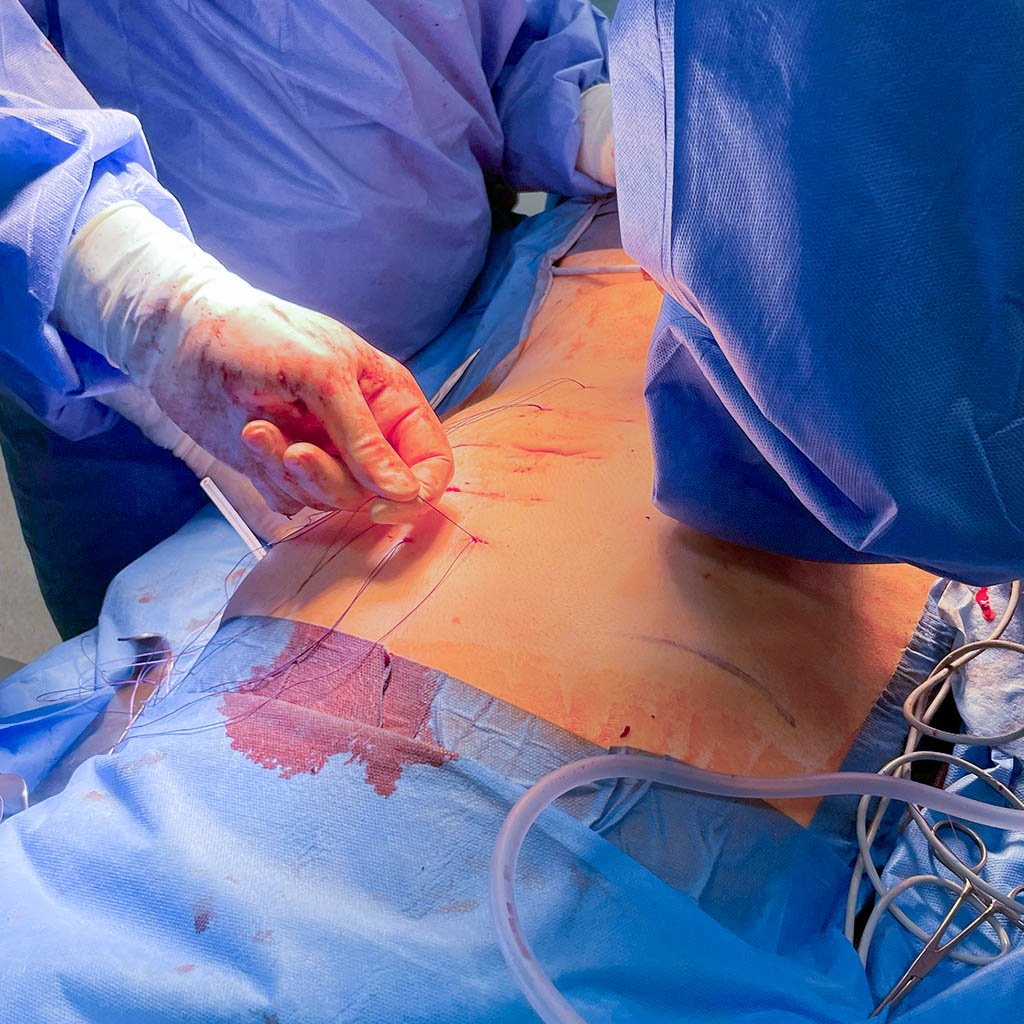
Removing the traction sutures
The traction sutures can be taken out easily without the laparoscopic tools. Simply pull on one end carefully until the suture thread comes out completely.
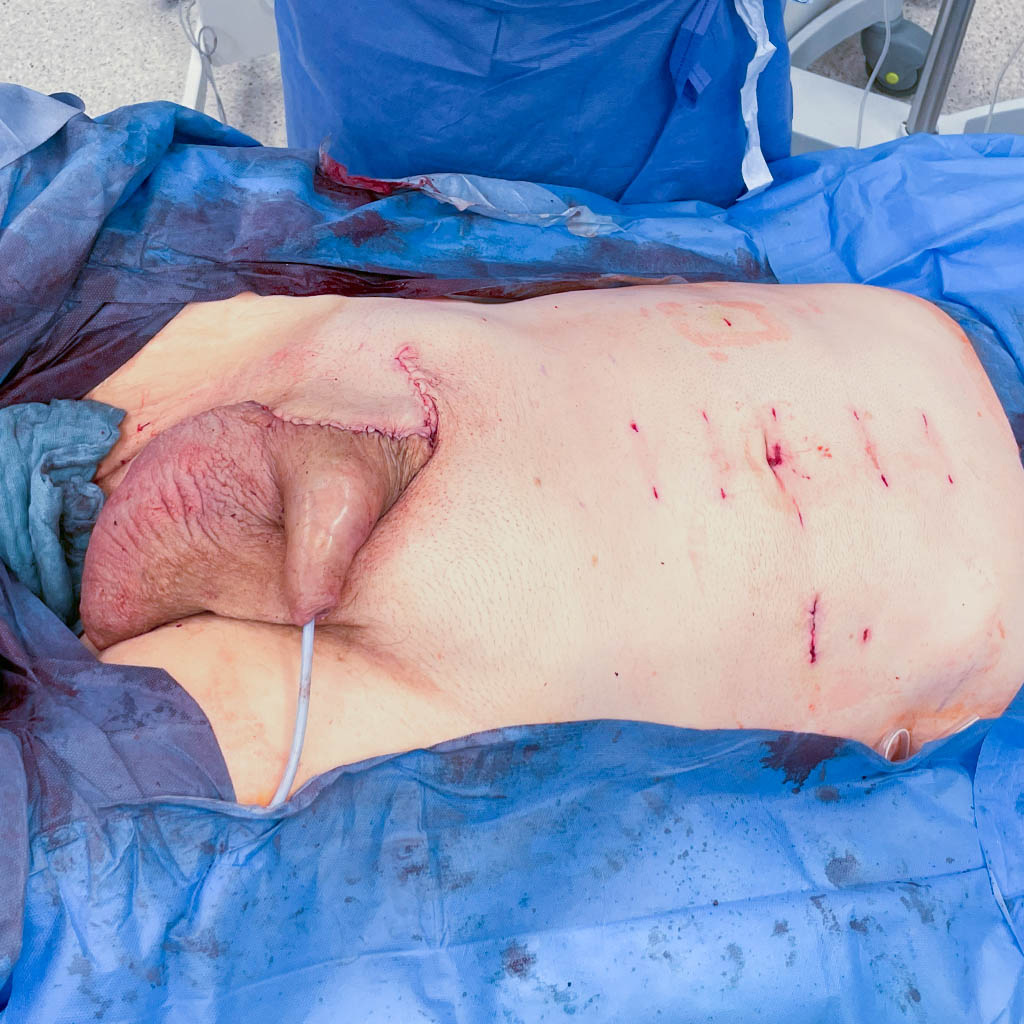
Result
The successful repair of the massive scrotal hernia significantly increased the Quality of Life of the patient. He felt well and was back to a normal life 3 weeks after the surgery.
Metin Mazgaldzhi was pleased with the effectiveness of the laparoscopic IFT
This was the most complex hernia the leading surgeon had ever seen in his hospital. That given, Metin was even more impressed with how well the intraoperative fascial traction worked using fasciotens®Hernia.Start with fasciotens yourself
